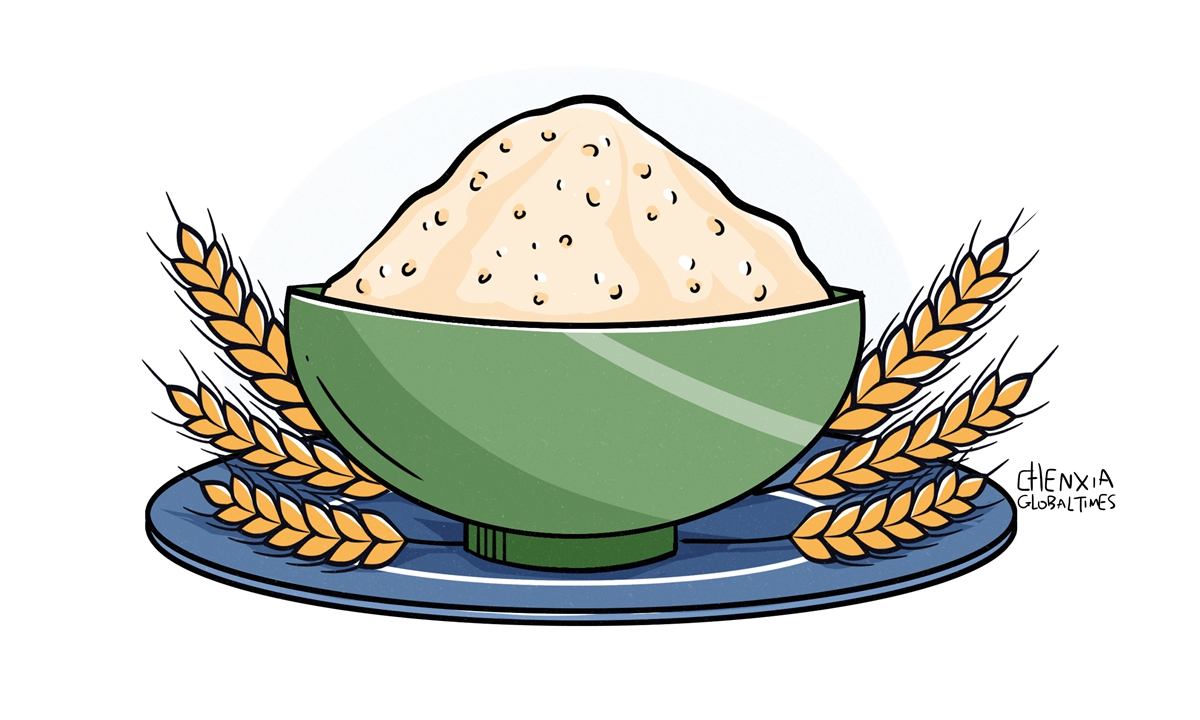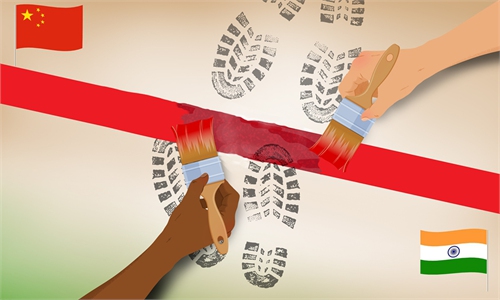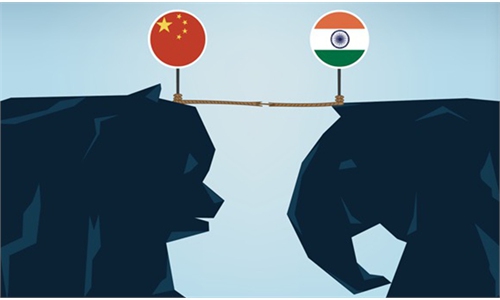
Illustration: Chen Xia/Global Times
India's market regulator extended the suspension of trading in derivative contracts of key farm commodities by a year, Reuters reported on Wednesday, as India, the world's important producer of rice and wheat, tries to tame food inflation.The extension surprised some market participants who were expecting trading to resume after India's retail inflation eased on an annual basis in recent months, but it turns out that the Indian government is still treating curbing inflation as a top priority. The suspension of trading in futures contracts has been viewed as a move to restrain speculation, and therefore help stabilize food prices.
As of the end of November, India's domestic wheat prices have jumped 33 percent to a record 29,000 rupees ($355.19) per ton, way above the government-fixed buying price of 21,250 rupees, according to media reports. Although food prices, which account for nearly 40 percent of India's CPI basket, reportedly eased to 4.67 percent in November, India still faces a tough task in curbing food inflation, which remained at an elevated level of 7.01 percent in October.
India's growing population means the country has to pay special attention to food security. India is reportedly on the verge of offering 2 million to 3 million tons of wheat from dwindling state reserves to bulk consumers such as flour millers and biscuit makers as it attempts to cool soaring prices. Such measures are necessary for India to curb food inflation.
Although inflationary pressure has eased somewhat, it is still critical for the Indian government to stabilize food prices to ensure the livelihoods of ordinary people. This is because India, which has a low per capita grain output and a large population living in poverty,is relatively vulnerable to the impact of rising food prices.
There is no need to deny that India has made much progress in agriculture. The country has become an important producer and exporter of agricultural products, with an annual export volume of wheat of 2 million tons. However, some statistics showed the annual availability of food grains in India for fiscal year 2021 amounted to about 185 kilograms per capita, which is below the general international standard of 400 kilograms per capita. Against the background of the complex and changing international situation this year, India's main task is still to use policy tools to stabilize domestic food prices and secure domestic supply of agricultural products.
Compared with Western countries, India is more sensitive to changes in inflation, especially stubborn food inflation. The rise of CPI in India is the result of multiple factors, among which subdued imported inflation is an important one. When India plays an increasingly important role in the world economy and deeply integrates into the global industrial chain, the country will inevitably bear more imported inflation pressures.
At present, global inflationary pressure still remains high. The IMF predicted in October that this year's global inflation rate may be 8.8 percent, much higher than last year's 4.7 percent. In order to stimulate the domestic economy, the US continues to adopt an extremely loose monetary policy, but now it has radically tightened its monetary policy. The US' sudden shift to aggressive interest rate hikes has pushed up the US dollar and international commodity prices, exporting inflation to other countries and regions.
India has reportedly overtaken the UK to become the world's fifth-largest economy and is now behind only the US, China, Japan and Germany. In the process of economic growth and its integration into the global industrial chain, how to deal with imported inflation is a subject that India must consider.
Food-price inflation is a sensitive issue in India. It is hoped that this will not become a constraint to its economic growth and its participation in the global industrial chain. India's proper control of rising domestic food prices is not only of great significance to ensuring people's livelihood at home, but also a major contribution to global food price stability.
The author is a reporter with the Global Times. bizopinion@globaltimes.com.cn



